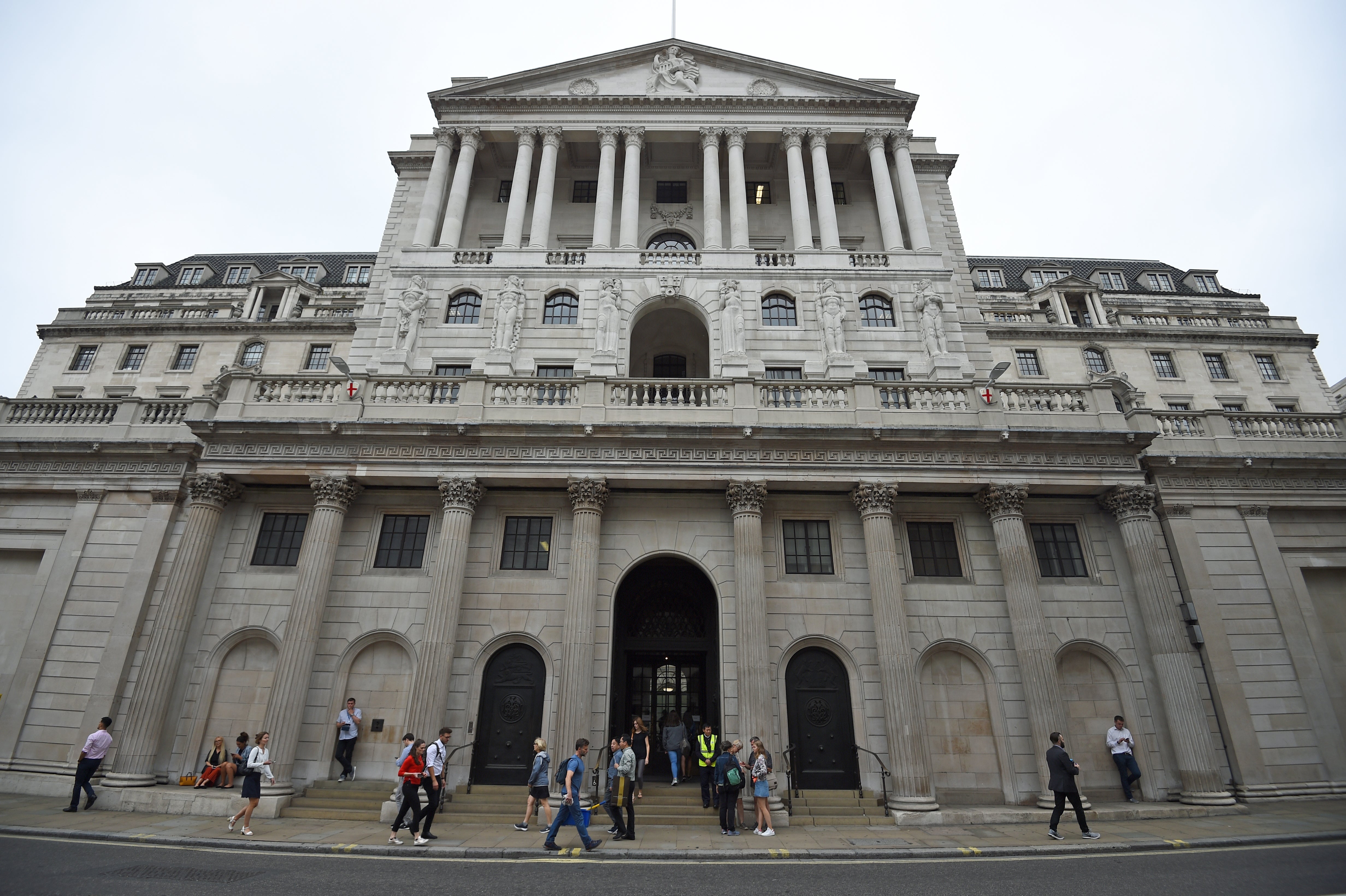How worried should we be about a base rate rise?
An interest rate increase is imminent. But how hard will it hit us?

Interest rates in the UK may rise again as early as Thursday as the Bank of England finds itself in a “near-impossible position” that will “cause economic pain whatever it decides”.
Balancing a fragile recovery from the double whammy of Brexit and the pandemic with runaway inflation, most analysts are now predicting an imminent interest rate rise as the Bank’s Monetary Policy Committee (MPC) attempts to bring rising costs back to within the 2 per cent target.
But almost 40 per cent of consumers are worried about the effect that such a move will have on their personal finances though, rising to 50 per cent among millennials.
Fears over debt repayments are particularly acute, with concerns over higher mortgage payments as well as short-term debts like credit cards, according to research by Aegon. Half of consumers are worried that the government will pass on the increase in tax rises, too.
“We are without question living in unprecedented times but despite the worst of the pandemic seemingly behind us, we are now facing an economic climate that will impact the day-to-day lives of households up and down the country,” says Kate Smith, head of pensions at Aegon.
“With inflation now at its highest since before the days that the internet was widely available and higher interest rates looking highly likely, many people will be feeling a financial squeeze like never before.
“It’s never been more important, regardless of situation, to make a realistic financial plan for both the short and long-term,” says Smith. “Doing so can help with budgeting for immediate and future goals.”
But even the most detailed budget will struggle to help absorb individuals’ experience of inflation, and real-life costs are rising far faster than even the 30-year-high being widely reported, warns Graham Cox, founder of the Self-Employed Mortgage Hub.
“The CPI figure rose to 5.4 per cent last month, but most economists agree the CPI doesn’t truly reflect the inflation rate for the average person. The more accurate RPI figure was 7.5 per cent. If inflation rises much higher, the impact for people on low incomes will be catastrophic, and certainly far worse than the effects of a small hike in interest rates.”
Get a free fractional share worth up to £100.
Capital at risk.
Terms and conditions apply.
ADVERTISEMENT
Get a free fractional share worth up to £100.
Capital at risk.
Terms and conditions apply.
ADVERTISEMENT
“The Bank of England must prevent runaway inflation at all costs,” he adds.
“Central banks have been slow off the mark due to Covid but some upward motion to rates is long overdue,” says Adrian Kidd, chartered wealth manager at EQ Financial Planning.
“Care is needed, however, as we saw last week how easy it is to spook markets with significant volatility in the US. Central banks find themselves in a pickle as moving too aggressively and too quickly could mean a recession ensues. The balancing act is immense.”
So most expect the Bank to act on Thursday, but to adopt a “softly softly” approach with a minimal hike, at least at first – something those who have locked in rates on big loans won’t be hit by – at least at first.
Few believe this week’s rate rise, assuming it comes, will be anywhere near the end of the story though.
The idea behind raising interest rates to deal with rising costs is that an increase in the cost of borrowing should discourage consumer spending, which then induce downward pressure on prices.
But it doesn’t always work that way, especially if the increase isn’t significant enough to trigger that response. Instead, the rate hike could simply add to the broader cost of living crisis.
Andrew Montlake, managing director of independent mortgage broker, Coreco, notes: “Another small increase in rates will not affect the majority of existing mortgage borrowers who have long since run to the sanctuary of fixed rates.
“That said, a rate rise will affect future potential borrowers and is yet another slap across the face to those already facing higher energy costs, food prices and an ill-judged refusal by the government to hold back on a national insurance rise.
“The problem is that another small increase is unlikely to temper inflationary pressures without a major change, and while rates do need to get back to some semblance of normality sooner rather than later, the public just aren’t ready for this right now,” Montlake adds.
Lewis Shaw, founder of Shaw Financial Services agrees. "The Bank of England has to get a grip on raging inflation but will small rate rises achieve that goal? Probably not,” he says.
“Unfortunately, we’ve got a government so preoccupied with alleged lockdown nonsense they’re asleep at the wheel of the economy, and the cliff edge that many of us have been warning about for 18 months is getting dangerously close.”
Join our commenting forum
Join thought-provoking conversations, follow other Independent readers and see their replies
Comments
Bookmark popover
Removed from bookmarks